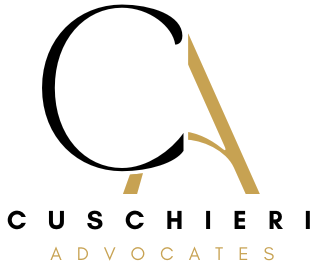Regulatory Compliance for iGaming Companies: Key Considerations in 2025
The iGaming industry, encompassing online gambling, sports betting, and virtual casinos, has experienced exponential growth over the past decade. This rapid expansion has drawn the attention of regulatory bodies worldwide, leading to a complex web of compliance requirements that operators must navigate. Regulatory compliance in iGaming is not merely a legal obligation; it is a critical component of maintaining trust with players, ensuring fair play, and fostering a sustainable business model.
As the industry evolves, so too do the regulations that govern it, making it imperative for operators to stay informed and adaptable. At its core, regulatory compliance in iGaming involves adhering to laws and guidelines set forth by various jurisdictions. These regulations can cover a wide range of areas, including licensing requirements, anti-money laundering (AML) protocols, data protection, and responsible gaming initiatives.
The stakes are high; non-compliance can result in hefty fines, loss of licenses, and irreparable damage to a company’s reputation. Therefore, understanding the intricacies of regulatory compliance is essential for any iGaming operator aiming to thrive in this competitive landscape.
Evolving Regulatory Landscape for iGaming Companies
Global Trends in iGaming Regulation
In recent years, many jurisdictions have adopted more liberalized frameworks, allowing for online gambling, while others have tightened their regulations in response to concerns about problem gambling and consumer protection. The United States, for example, has seen a patchwork of state-level regulations emerge following the repeal of the Professional and Amateur Sports Protection Act (PASPA) in 2018, leading to a surge in legalized sports betting across various states.
European Regulatory Environment
In Europe, the regulatory environment is equally dynamic. The United Kingdom’s Gambling Commission has implemented stringent measures aimed at protecting consumers and ensuring fair play, while countries like Sweden have introduced new licensing systems that require operators to adhere to specific standards. The European Union is also exploring harmonized regulations that could impact cross-border operations within member states.
The Importance of Compliance
This evolving landscape necessitates that iGaming companies remain vigilant and proactive in their compliance efforts, as failure to adapt can lead to significant operational challenges.
Key Considerations for iGaming Companies in 2025
As we look towards 2025, several key considerations will shape the regulatory compliance strategies of iGaming companies. First and foremost is the increasing emphasis on data protection and privacy. With regulations such as the General Data Protection Regulation (GDPR) in Europe setting high standards for data handling, operators must ensure that they have robust systems in place to protect player information.
This includes implementing encryption technologies, conducting regular audits, and training staff on data protection protocols. Another critical consideration is the growing focus on responsible gaming measures. Regulators are increasingly mandating that operators implement tools and resources to help players gamble responsibly.
This includes features such as self-exclusion options, deposit limits, and access to support services for problem gamblers. Companies that prioritize responsible gaming not only comply with regulations but also build a positive brand image that resonates with consumers who value ethical practices.
Impact of Emerging Technologies on Regulatory Compliance
Emerging technologies are reshaping the iGaming landscape and presenting both opportunities and challenges for regulatory compliance. The rise of blockchain technology, for instance, offers a transparent and secure method for transactions that can enhance trust between players and operators. By utilizing smart contracts, operators can automate compliance processes such as age verification and transaction monitoring, reducing the risk of human error and increasing efficiency.
Artificial intelligence (AI) is another transformative technology impacting regulatory compliance in iGaming. AI-driven analytics can help operators identify patterns indicative of problem gambling behavior or potential fraud. By leveraging machine learning algorithms, companies can enhance their AML efforts and ensure compliance with regulatory requirements more effectively.
However, the use of AI also raises ethical considerations regarding player privacy and data usage, necessitating a careful balance between innovation and compliance.
Importance of Responsible Gaming Measures
Responsible gaming measures are not just a regulatory requirement; they are essential for fostering a safe and sustainable gaming environment. As the iGaming industry continues to grow, so does the potential for gambling-related harm. Operators have a moral obligation to protect vulnerable players and promote healthy gaming habits.
This responsibility extends beyond mere compliance; it involves creating a culture of accountability within organizations. Implementing responsible gaming measures can take various forms. For example, operators can provide educational resources about the risks associated with gambling and offer tools that allow players to set limits on their spending or time spent playing.
Additionally, partnerships with organizations specializing in addiction support can enhance an operator’s commitment to responsible gaming. By prioritizing these measures, companies not only comply with regulations but also contribute positively to the broader community.
Best Practices for Ensuring Regulatory Compliance in iGaming
To navigate the complexities of regulatory compliance effectively, iGaming companies should adopt best practices that promote a culture of compliance throughout their organizations. One fundamental practice is establishing a dedicated compliance team responsible for monitoring regulatory changes and ensuring adherence to applicable laws. This team should be well-versed in the specific regulations governing their jurisdiction and maintain open lines of communication with legal advisors.
Regular training sessions for employees are also crucial in fostering a compliance-oriented culture. Staff should be educated on the importance of compliance, the potential consequences of non-compliance, and the specific policies and procedures in place within the organization. This training should be ongoing to keep pace with evolving regulations and emerging trends in the industry.
Moreover, implementing robust internal controls is essential for effective compliance management. This includes conducting regular audits to assess compliance with regulatory requirements and identifying areas for improvement. Companies should also invest in technology solutions that facilitate compliance processes, such as automated reporting systems that streamline data collection and analysis.
Finally, maintaining transparency with regulators and stakeholders is vital for building trust and credibility within the industry. Open communication regarding compliance efforts and challenges can foster positive relationships with regulatory bodies and demonstrate a commitment to ethical practices. In conclusion, as the iGaming industry continues to evolve amidst changing regulations and technological advancements, operators must prioritize regulatory compliance as a cornerstone of their business strategy.
By understanding the complexities of the regulatory landscape, embracing responsible gaming measures, and adopting best practices for compliance management, iGaming companies can position themselves for long-term success while contributing positively to the gaming community at large.







